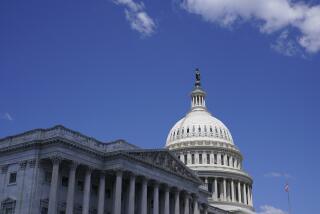Protecting Telephone Anonymity
- Share via
Gary T. Marx (“When Anonymity of Caller Is Lost, We’re That Closer to a Surveillance Society,” Op-Ed Page, May 3) writes that a system that displays a caller’s telephone number to his would-be receiver before he answers it is a mixed blessing. One of its problems, he argues, is that sometimes it’s good for society that a caller knows he can be anonymous. He writes approvingly of a plan that would allow callers to block display of their numbers.
Perhaps telephone anonymity sometimes is socially helpful. Most of the time, however, it isn’t. For many of us, evening may too often be a time when we run a gauntlet of harassing cranks, telemarketers, bill collectors, and others who invade our privacy, with telephones that we, not incidentally, have paid for. Since, given the opportunity, these are precisely the people who would choose to remain anonymous, a system that allows them to do this is fatally flawed to begin with.
What about callers to counseling hot lines and others for whom anonymity serves a genuinely useful purpose? They could be protected by regulations prohibiting the use of caller identification devices. This would be easy to enforce because, like call forwarding or call waiting, the telephone company must patch the subscriber’s line into special switching equipment.
For the rest of us, however, a system that forces the caller to be responsible for his actions by stripping away his anonymity is a long overdue development. When someone rings my doorbell, I can look through the peephole and decide whether I want to answer it. There is no good reason that I shouldn’t be able to look at a display screen and make the same judgment when someone rings my telephone.
BRUCE ALLEN
Pasadena

